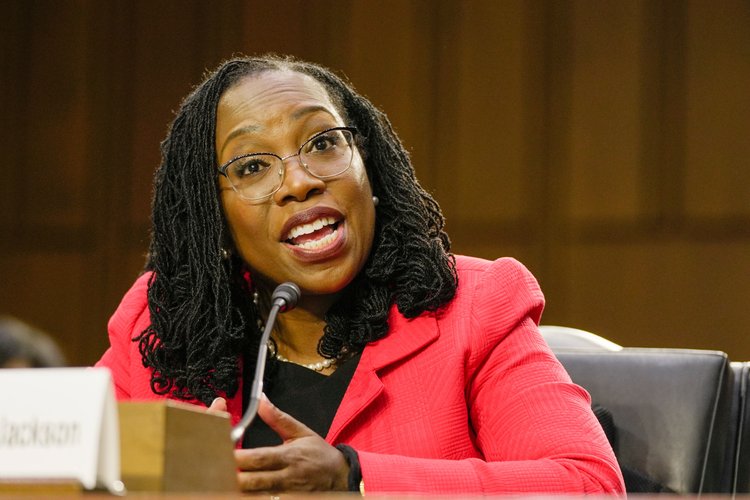The confirmation hearings in the Senate Judiciary Committee for Judge Ketanji Brown Jackson have been a relatively peaceful affair. In comparison to the ruthless attacks on Justice Brett Kavanaugh and Justice Amy Coney Barrett, there has been relative civility surrounding the D.C Court of Appeals judge. While it is likely that Judge Ketanji Brown Jackson will be confirmed, it is good to take a dive into her actual rulings and responses to questioning, not just her resume.
Jackson’s stance on abortion has been problematic for most conservatives. In the hearing, she referred to Roe v. Wade as “the settled law of the Supreme Court,” while later acknowledging that if Dobbs v. Jackson overturned Roe then it, too, would be treated as precedent.
But in 2001, Jackson was involved in a Massachusetts case dealing with pro-life counselors and their right to assemble outside of abortion centers. She co-authored a decision that allowed the creation of a “buffer-zone” between the counselors and the women entering the clinics.
Conservatives have also expressed concern over loud support for Jackson from pro-abortion groups such as Planned Parenthood and the National Abortion Rights Action League (NARAL). A statement from Planned Parenthood stressed that “Judge Jackson will play a crucial role in the direction the court takes in the future.”
Among the concerned is Senator John Cornyn from Texas, who asked why far-left groups such as Demand Justice have publicly supported Judge Jackson’s nomination. Demand Justice is a progressive activist group whose purpose is to add more justices to the Supreme Court. With a court packed by the pro-abortion Biden administration, positive abortion reform at SCOTUS would become virtually impossible for a generation.
Perhaps most concerningly, when asked about the definition of a woman by Senator Blackburn (R-Tennessee), Judge Jackson refused to give a straight answer. Should a Judge who cannot define what a woman is be allowed to preside over cases dealing with gender, sexual identity, and abortion? Behind Judge Jackson’s impressive paper qualifications lies what seems to be an entrenched progressive ideology, committed to the recent fabrication that “man” and “woman” are culturally constructed concepts, instead of God-given biological realities.
Throughout the hearing, Ketanji Jackson has said many of the “right” things. She has proclaimed that the Dobbs case could overturn existing abortion precedent. She has stated that she would interpret the constitution as it was originally written. She has expressed love and support for the police. Perhaps all of this is true. Sadly however, if we look at the progressive view of the court, as an institution that legislates morality instead of interpreting the Constitution, it seems likely that Judge Jackson’s comments on abortion and failure to define a woman, rather than her paper qualifications, can tell us more about her likely future on the Court if her nomination succeeds.
A hallmark of conservative Justices on the Supreme Court is that they are committed to the Constitution above conservatism, sometimes disappointing conservative voters. Although this may be frustrating to conservatives, it demonstrates that they judge on principle, and not policy. An NPR report found that progressive-leaning justices stuck together in their voting patterns while conservatives appeared to vote more independently. Conservatives like the late Justice Scalia, Justice Thomas, and Justice Alito base their decisions in what the Constitution says, not what society feels. Ketanji Brown Jackson has not shown any willingness to step outside progressive groupthink to protect the unborn and defend the uniqueness of womanhood. Therefore, her nomination to the Supreme Court should be stalwartly opposed.


